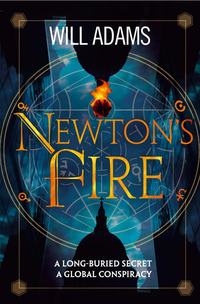
Полная версия
The Eden Legacy
‘You mean me, I suppose?’
He twisted his pen around in his hands. ‘Mostly, yes.’
‘How much is it now?’
‘Two hundred and eighty. A little over. And our loan arrangement did specify repayment within—’
‘And the second option?’ If anything had happened to Emilia, her father would have been the one to call. If anything had happened to her father, it would be Emilia. She closed her eyes for a moment, not willing to pursue her logic further.
‘We’ve been expanding really quickly lately. Taking on staff. But most of our projects are costing us a lot more than they’re bringing in.’
‘You want me to fire people?’
‘You asked me to outline our options. That’s one of them.’
‘What else?’
‘This is a fine business you’re building, Rebecca,’ said Titch. ‘We’ve already had unsolicited approaches from several companies. They’d pay top dollar.’
‘No,’ she bridled. ‘This is my company.’
‘Please, Rebecca. At least think about it. You’re a great presenter. I mean, a great presenter. But you’re not a businesswoman. You’re not here often enough, for one thing. You’re always off filming. And your heart’s not in it, not really, not if you’re honest with yourself.’
‘I won’t take orders.’
‘No one would give you orders,’ laughed Titch ruefully. ‘They wouldn’t dare, frankly. If you left, there’d hardly be a company any more.’
He was stroking her ego, she knew, yet it worked all the same. ‘There must be some alternative,’ she said. ‘Can’t we ride it out until America comes in?’
‘There’s no guarantee America will come in,’ Titch told her. ‘And, anyway, we won’t know for weeks at least; and we won’t see any real revenue for months after that. In the meantime we have our salaries and rent to pay, our suppliers to—’
A double rap on the door. Nicola poked in her head, smiled brightly. ‘You said to let you know when that Frenchman called back,’ she said.
Rebecca’s mouth went dry and her heart started thumping hard. ‘Pierre?’
‘He’s on hold right now.’
‘Okay. Put him through.’
‘Will do.’
‘You couldn’t give me a moment, please,’ Rebecca asked Titch. ‘I really have to take this.’
‘Of course.’ He rose to his feet. ‘We’ll finish this later.’
She nodded and took a deep breath, wiped her palms upon her trousers. On her desk, her phone began to ring.
II
The Maritsa lurched into another wave valley, sending the anchor swinging back across the open hatch like a wrecking ball. Knox crouched down and waved to the two conservators in the hold to get clear. Another wave passed beneath them. The Maritsa rolled harder; the anchor gained momentum. Klaus put out both hands in an effort to stop it, but it simply pushed him backwards until he tripped over a davit and fell on to his backside. It should have been funny, but no one was laughing. Something this heavy could do untold damage. It swung towards Lucia; she dithered about which way to evade it for so long that Knox had to push her clear, sending her sprawling across the deck.
The crane operator glanced overboard, clearly thinking of dumping the anchor back at sea; but there was a team of divers still underwater, and it would put them at fearful risk. Knox waited for the anchor to reach the end of its next swing, grabbed hold of its end and hauled himself up, then began using his weight to work against the roll of the boat, like a child slowing a playground swing. Miles saw what he was doing and clambered up too, and together they calmed the anchor enough for the crane operator to lower it safely through the open hatch. The moment it passed beneath deck level, they leapt free, allowing the other crew to close the hatch, cutting down the anchor’s room to swing, its ability to cause damage. They heard it thump hard into the hold floor then roll briefly until it found its angle of repose. They opened the hatch back up. The conservators were already on either side of the anchor, releasing it from its straps. Ricky had somehow got down there already, shouting out his usual orders for Maddow’s camera. Knox looked around. No one appeared badly hurt, though Lucia was still on her backside, looking a little pale. ‘Sorry about that,’ said Knox, helping her up.
‘Christ!’ she muttered. ‘The size of that thing! I’d have been jam.’ She brushed herself down, gave him a dry smile. ‘You’re not planning to bring everything up this way, I hope?’
‘It’ll be fine,’ he assured her. ‘One of our thrusters broke at a bad time, that’s all. We’ve got spares. And we’re unlikely to find anything else that size.’
‘If you say so.’
Movement out on the water caught his eye: Garry at the helm of their Bayliner, bringing Dieter Holm for his presentation. He leaned over the gunwale to watch the motorboat slapping inelegantly through the rising sea, shipping far more water than was prudent. ‘Were you planning on getting back to Morombe tonight?’ he asked.
‘Uh-oh,’ said Lucia. ‘I don’t like the sound of that.’
‘This weather’s not great,’ he said. ‘If it doesn’t improve soon …’
‘Would there be somewhere for me to sleep?’
‘Of course. And it probably won’t come to that.’
‘Then I’ll keep my fingers crossed. In the meantime, is it okay if I ask another question?’
‘Sure. Fire away.’
She gave him a slightly crooked smile, as if to apologise in advance. ‘It’s just that your boss was telling me about some family folklore of his.’
‘Ah,’ said Knox.
‘Apparently one of his great, great ancestors originally arrived in California on some huge boat from China. He assured me this was at least five hundred years ago, more like six, a good century before any Europeans got there.’
‘It’s perfectly plausible,’ said Knox. ‘The Spanish discovered the Philippines in 1520, and it kicked off a pretty substantial trade between Manila and Mexico. Some Chinese certainly came over to the Americas then. Maybe Ricky’s ancestor was among them.’
‘That’s not what he’s claiming.’
‘I know it’s not,’ said Knox. Ricky was convinced that his ancestors had arrived in America on one of Zheng He’s treasure ships, long before Columbus and the Spanish: that the Chinese, therefore, were the first true discoverers and settlers of America.
‘So? Do you think he’s a crank?’
‘People called Schliemann a crank,’ replied Knox. ‘He discovered Troy. And plenty thought Columbus a crank. He discovered the New World.’
‘And you’d put your boss in their class, would you?’
‘Sometimes people make important discoveries because they stick to unorthodox beliefs even when the world’s laughing at them. Most people would have given up long ago, but Ricky’s kept at it, and I admire him immensely for that.’ It was true enough. Thirty years ago, Ricky had set about proving that his family tradition was for real, scouring America’s western seaboard for evidence of fifteenth-century Chinese ships. When he’d come up dry, he’d searched the east coast instead, before working his way south through Latin and South America, combing beaches, talking to local museums and amateur historians, following up each and every promising lead. When he’d run out of American coastline, he’d turned his attention to Atlantic and Pacific islands instead, then Africa. In all, he’d announced the discovery of a treasure ship no fewer than seven times. The first six had led only to his public humiliation, yet still he’d carried on. And finally he’d come to Madagascar, where he’d seen a rusted cannon in the grounds of a tourist hotel here in Morombe. No one had thought much of it until then, because cannons were common on this coast, from the vast number of ships sunk over the centuries doing the run from Europe to the Indies. But Ricky had recognised instantly that this cannon was different. This cannon had been fifteenth-century Chinese.
‘So do you agree with him?’ asked Lucia. ‘That a treasure ship could have made it all the way to America, I mean?’
‘I’m a scientist,’ he told her. ‘I go where the evidence takes me.’
‘And where would that be?’
Knox nodded at Dieter Holm, arriving at that moment at the top of the gangway steps, laptop slung over his shoulder, carrying a box of comb-bound folders. ‘That’s exactly what we’re about to find out.’
FOUR
I
Rebecca’s heart was in her mouth as she picked up the receiver. ‘This is Rebecca,’ she said.
‘Rebecca? Cherie? C’est Pierre ici. Pierre Desmoulins.’
‘Pierre. What is it? What’s happened?’
‘Please.’ His voice sounded strained, thin, far away. ‘You’re not to panic. We know nothing for sure yet.’
‘Tell me.’
‘Cherie, they find your father’s boat out at sea. Personne à bord.’
‘When?’
‘Last night. But no one see your father or your sister since yesterday morning.’
‘Emilia?’ Rebecca’s heart plunged. ‘Not Emilia too.’
‘I’m sorry,’ said Pierre. ‘But you mustn’t give up hope.’
‘What about Michel?’ Michel was Emilia’s infant son.
‘He’s safe,’ said Pierre. ‘Emilia leave him with Therese before she go out.’
‘Are you searching for them now?’
‘Not me myself; not yet. I’m in Antananarivo for a conference. I only just learned of this myself. I wanted to tell you as soon as possible. But sure, everyone is looking, of course they are.’
‘I’m flying out,’ said Rebecca. Now that the worst had been confirmed, she felt detached yet strangely calm. ‘I’ll be on the first flight.’
‘Good. I think that is wise. And I’ll make sure to—’ But then the line went dead.
‘Pierre?’ she called out. ‘Pierre?’ But now there was only dial-tone. Connections with Madagascar were always precarious. She put the phone down, stared at it dazedly, half-expecting Pierre to ring back. Her door banged open before he could, however, and Titch walked in, looking anxious, as though he’d overheard enough to alarm him. ‘What’s happened?’ he asked. She repeated numbly what Pierre had told her. ‘I’m so sorry,’ said Titch, appalled. ‘What can we do?’
‘I need to get to Madagascar,’ said Rebecca. ‘As soon as possible. Now. This afternoon.’
Titch nodded. ‘I’ll take care of it.’
A sudden vision of her father the last time Rebecca had seen him, a little bowed by loss, his hair white and his eyes permanently moistening; and then of her sister Emilia, three years her junior, just a headstrong teenage girl back then, effervescent with ideas that came too quickly for her mouth to keep pace, but now a woman with an infant son. A black cavern opened inside Rebecca; she suffered a moment of terrible vertigo. Her door opened again and Nicola bustled in, her eyes down, concentrating on not spilling her plate of ginger snaps and frothy mug of hot chocolate. She set them down on the walnut desk, touched her shoulder sympathetically. Rebecca took the mug in both hands, savouring the sharp comfort of its heat, staring blankly down at the film of dark skin that thickened and wrinkled upon its cooling surface. Out in the main office, she could hear her staff working their phones, checking visa requirements, moving meetings, cancelling appearances, swept up by the drama of someone else’s tragedy. Ken shouted out that the first flight left Heathrow later that afternoon, flying to Antananarivo via Paris, only business class available. Three thousand five hundred and twenty-eight quid. Should he take it? If so, how should he pay? There was a beat of silence in the office. Rebecca’s breath caught in her throat. She took one hand off her hot chocolate and clenched it beneath the table, only too well aware that her own credit cards would never take such a hit.
‘Company account,’ said Titch.
‘But I thought we weren’t allowed to—’
‘Company account,’ repeated Titch, more firmly. ‘We’ll sort it out later.’
Nicola began reading out a list of prevalent diseases, Lindsay checking them against Rebecca’s vaccination record. Bilharzia, meningitis, rabies, intestinal worms, dengue haemorrhagic fever. Rebecca felt dismay as the list went on. Cholera, filariasis, TB, yellow fever, typhus, hepatitis. She’d lived in Madagascar eighteen years, remembered none of this. A high-risk malignant malarial region with chloroquine and fansidar resistance. Lariam gave her nightmares, doxycycline turned her skin orange; she’d need Malarone instead. They’d a month’s worth in the storeroom. Titch brought in a box, along with a thick sheaf of euros that he slipped clandestinely into her bag. Then he sank to his haunches and spoke slowly and clearly. Everything was in hand. A taxi was on its way to take her home to pack and then on to the airport. Her ticket to Antananarivo was bought and paid for, as was her ongoing flight from Antananarivo to Tulear, the airport nearest her home. They were still working on a driver to meet her at Tulear Airport with a hire car; he’d text her the details the moment he had them. In the meantime, she was to forget about their earlier conversation; he’d handle everything until she got back. She took and squeezed his hand in gratitude. Their eyes met; he seemed on the verge of saying something else, but then thought better of it. The buzzer sounded. Her taxi was already downstairs. She packed up her laptop, her international power adapter and spare fuse, was hurrying to the door when she glanced back, saw her staff gathered in a rough semicircle, their faces solemn and troubled, like mourners at a graveside, as though they’d already accepted the worst.
She stopped and took a pace back towards them. ‘They’re not dead,’ she said defiantly. ‘You hear me? They’re not dead.’
Titch came over and took her in his arms, squeezed her so tight that she could feel their hearts banging. ‘They’re not dead,’ he murmured. ‘You’ll find them. If anyone can, you can.’
II
Knox arrived in the conference room for Holm’s presentation to find only Miles already there, his feet up on the conference table, scrunching up sheets of paper from his pad, trying to score three-pointers in the waste-paper basket, and not doing very well to judge from the mess he’d made of the floor. ‘Just us?’ he asked.
‘That’s how Ricky wants it,’ said Miles. ‘We’ll brief the others later.’
Knox nodded. The conservators had their hands full with the anchor; the crew with fixing the thrusters and checking hull damage from the anchor. And their MGS colleagues, while expert divers, were mostly veterans of the armed forces or the oil industry, with limited interest in the science or archaeology of the site. Besides, half of them were still on the afternoon dive, and would need to be briefed this evening anyway.
He took a chair, but found it difficult to keep still, so was soon up again, pacing the room. Their first job here had been to take scans and sediment samples. Dieter Holm and his team had been working round the clock to analyse this new data and build a three-dimensional profile of the wreck-mound from it, so that they’d have a better idea of how to go in. Tonight, therefore, was the start of the salvage proper, and Knox felt a peculiar kind of excitement he hadn’t felt in a good two years.
This room was where most of the press and TV interviews were given, so Ricky had hung the walls with props: portraits of Zheng He, artists’ impressions of his fleet, photographs of artefacts on the sea-bed and reproductions of medieval world maps. Knox stopped before one of these now. It was known, rather optimistically, as the Zheng He map, and it showed both hemispheres of the world, with Asia, Africa and Europe in one, America in the other. Though it dated from the eighteenth century, Ricky and many others were convinced it was a copy of an earlier map, made by Zheng He himself in around 1420; and that it therefore provided compelling evidence that the Chinese had found and mapped America. Knox might have been more open to this dating had it not been for the use of Mercator projections a hundred years before Mercator had even devised them, and the presence of the word ‘America’ thirty years before Amerigo Vespucci had been born.
‘Ron’s threatening us with another bloody curry tonight,’ said Miles, scrunching up a fresh sheet of paper.
‘Hell,’ said Knox. ‘I only just got my stomach back from last time.’ He moved along to a photograph of the wreck-mound. It was extraordinary the progress marine archaeology had made these past few decades, but it hadn’t all been good. The arrival of deep-sea technologies had enabled enterprising treasure hunters to track down and then plunder the richest wrecks, indifferent to their historic value. A backlash had started and international agreement had been reached, forcing modern salvagers to pay far more care and attention to the wrecks themselves, not just their cargoes. As a consequence, the basic processes of wreck-site formation were now pretty well understood. This wreck, for example: it was a fair bet that it had sustained a hull breach on the nearby reef. It would have had to have been severe, because the Chinese had used sophisticated watertight bulkheads to limit damage. Hull breaches typically sank ships in one of two ways. Either the weight of water would put such extra stress on the hull that the stern would simply snap off from the bow; or, more commonly, the water would wash from side to side, making the ship roll ever more violently on the waves, until finally it would reach its tipping point and so capsize. Artefacts would spill from its deck as it sank, leaving a scatter-pattern on the seabed, just like the one they’d found here; while the ship itself would be pinned to the bottom by its ballast, ironwork and cargo. Prevailing currents would push sediment up against it, like snowdrifts against a wall. They’d also ratchet up the stress on the hull’s caulked timbers until they snapped, exposing their unprotected innards. Barnacles, wood-boring molluscs, soft-rot fungi and cavitation bacteria would go to work. In seas this warm and fecund, the hull would quickly rot, as would any textiles, food, human and animal tissue and other organic material, leaving behind the merest traces of themselves. And, as the walls separating the internal holds and compartments rotted away, all the metal and stone artefacts would tumble together into one vast undifferentiated heap, like the grave goods of some warrior king buried beneath a great tumulus of sand, precisely like the one pictured right here, sixty metres beneath the sea.
The door opened abruptly and Dieter Holm strode in. He didn’t say a word, simply set down his cardboard box on the table, then turned on his laptop. He was short and slight, with gelled-back silver hair, gold-rimmed halfmoon spectacles and a sharply pointed white beard that suggested he rather fancied himself a bit of a devil. He had an outstanding reputation as a marine scientist, and Knox had been eager to meet him; but he’d barely arrived aboard the Maritsa before throwing a dreadful tantrum about his quarters and the constricted lab space. Knox didn’t altogether blame him, for Ricky had promised a state-of-the-art salvage ship, and the Maritsa was hardly that; but his reaction had still been pathetically over the top, leading his team straight back to Morombe, where they’d taken over a villa and set up shop.
The door opened again, and Ricky came in, followed by Maddow the Shadow. Knox couldn’t help but wonder if he’d been lurking outside, for he had a remarkable knack of being the last to arrive at any meeting. ‘Great,’ he said, taking a chair. ‘You’re all here. Then let’s get straight down to it.’
‘As you wish,’ said Holm. He took three comb-bound folders from his box, slid them across the polished tabletop. ‘These contain my analysis of the latest data,’ he said. ‘But essentially I can summarise the key finding in just three words.’
‘And?’ asked Ricky.
Holm’s smile grew thin yet somehow triumphant. ‘There’s nothing here,’ he said.
FIVE
I
Ricky had folded his hands loosely in his lap. When he heard Holm’s pronouncement, he clenched them into fists. ‘Nothing here?’ he demanded. ‘What do you mean, nothing here?’
‘I mean exactly that,’ answered Holm. ‘There’s no shipwreck here. There never was. And, by extension, there is no buried cargo.’
‘How can you say that?’ protested Ricky furiously. ‘What about all the artefacts we’ve found? The cannons? The anchors?’
‘Who knows?’ shrugged Holm. ‘Perhaps they spilled overboard during a storm. Perhaps one of your Chinese ships was threatened by pirates, and its crew jettisoned them for speed.’
‘Nonsense,’ said Ricky.
‘Or perhaps someone bought them on the Chinese black market, then scattered them around the sea-bed.’
‘How dare you?’ erupted Ricky, jumping to his feet. ‘How fucking dare you?’
‘I’m not suggesting it was you.’
‘Of course you are!’
‘What about the sonar anomalies in the wreck mound?’ asked Knox.
‘Rock formations,’ said Holm.
‘They can’t all be,’ protested Ricky.
‘They can all be,’ retorted Holm. ‘And they all are. I admit some of the original readings were highly suggestive; but the latest data are incontrovertible.’ He touched one of the folders. ‘Check for yourself, if you don’t believe me. And even if the sonar scans and magnetic imaging weren’t conclusive, which they are, our sediment analysis would be. If a treasure ship was buried here, the sand on top of it would be rich with traces of wood from its hull, of jute and tung oil from its caulking; we’d have found flecks of rust from nails, from anchors and other ironwork; we’d have found the residue of gunpowder. We haven’t. Barely a whisper, not in any of the samples you took. No traces, ergo no wreck. What you announced as a shipwreck mound is essentially just one long ridge of rock covered by sand.’
The silence in the stateroom was so complete that Knox could hear the hum of the fan in Holm’s laptop, the soft reproach of a wave as it slapped their hull. But then Ricky pointed at Holm. ‘You’re out,’ he told him.
‘That won’t change the truth about—’
‘I said you’re out. Get off my boat. Get off.’
‘As you wish.’ Holm primly closed his laptop, slung it over his shoulder, walked to the door.
‘You signed confidentiality agreements, remember?’ shouted Ricky, following him. ‘Not one word of this better get out.’
‘How do you plan to stop it?’
‘I’ll sue your fucking arse off,’ said Ricky. ‘You’ll never work in this industry again.’ He slammed the door behind him, turned around. ‘And turn that fucking camera off,’ he bawled at Maddow the Shadow.
‘Yes, sir,’ said Maddow, dropping it from his shoulder.
‘And get out.’ He opened the door again, waited for Maddow to leave, then slammed it only slightly less forcefully. ‘Jesus!’ he said, coming back to the table. But his demeanour changed even as they watched, from anger and disbelief through anxiety to a real and palpable panic. He sat down heavily, put his head in his hands, began breathing fast and shallow.
‘What is it?’ asked Knox.
He looked up, still breathing hard. ‘How do you mean?’
‘I mean, you’re not just disappointed by this news. You’re scared.’
‘I don’t know what you’re talking about,’ said Ricky.
‘Yes, you do,’ said Miles.
A look of self-pity twisted Ricky’s face. ‘You guys don’t know how hard it was raising money,’ he said.
Knox frowned. ‘I thought you got it from Beijing.’
‘I did. But then there was that damned coup.’
Knox glanced at Miles. This salvage had originally been scheduled for the previous year, but an unexpected coup had seen off Madagascar’s former president, and the new guy had appointed his own people to the various ministries, forcing them to postpone. But this was the first they’d heard that it had affected their Chinese government funding. ‘Go on,’ he said.








